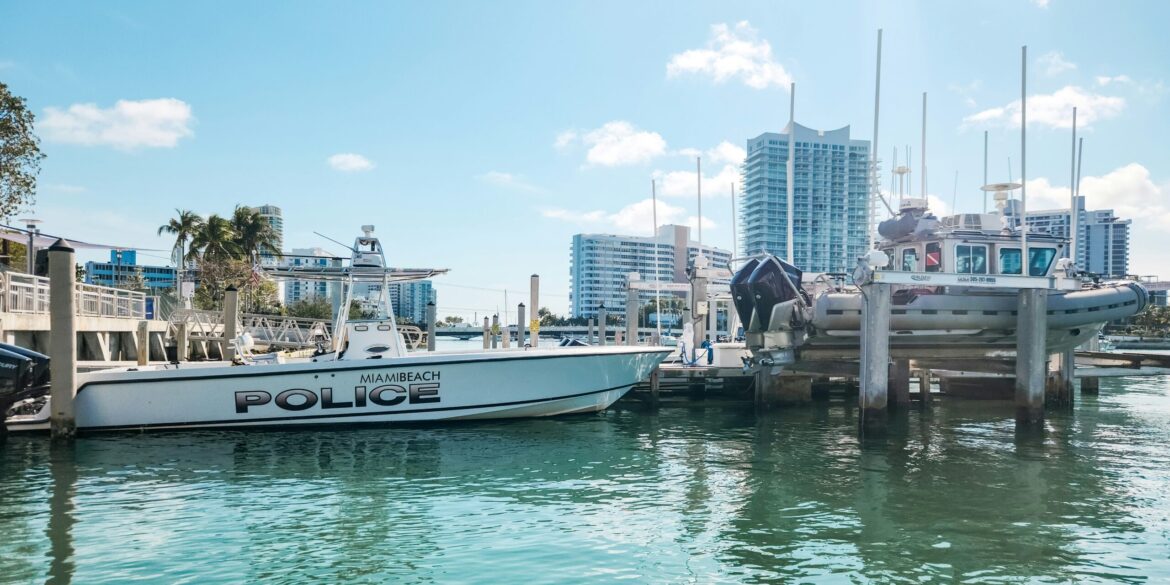MIAMI, FL — Miami-Dade Police Department is under intense scrutiny following the announcement of a federal investigation into the department’s use of force during protests and its general policing practices. This investigation, led by the U.S. Department of Justice (DOJ), has garnered significant attention, not only from local activists and community leaders but also from civil rights organizations across the country.
The DOJ launched the investigation in response to numerous incidents involving police officers using excessive force during public demonstrations, particularly following protests in Miami related to racial justice movements. The department’s handling of these events, especially during the summer of 2020, has raised concerns about potential violations of civil rights, and the investigation aims to determine whether systemic issues within the department are contributing to excessive force incidents.
The Context of the Investigation
The Miami-Dade Police Department has faced increasing criticism over its response to protests that erupted nationwide following the death of George Floyd in 2020. During several high-profile demonstrations in Miami, there were reports of officers using rubber bullets, tear gas, and other crowd-control tactics against peaceful protesters. These actions, which led to several injuries and arrests, have raised alarm within the community, particularly among civil rights organizations.
The DOJ investigation comes after a series of high-profile incidents where protesters, journalists, and bystanders reported feeling threatened by police tactics. The investigation will focus on whether Miami-Dade officers violated constitutional rights, including freedom of speech and the right to peaceful assembly. Specifically, it will assess whether the department used excessive force and failed to implement proper crowd control strategies.
The investigation has already drawn the attention of local leaders who have called for greater accountability within the department. Community organizations are pushing for a transparent review of police practices and demanding changes to ensure that the department prioritizes the safety and rights of all Miami residents.
The Role of Federal Oversight
Federal oversight into local police departments is not a new concept, but it has become more prevalent in recent years as part of a broader push for police reform across the United States. The DOJ’s Civil Rights Division regularly investigates police practices when there is evidence of systemic misconduct, such as discriminatory practices, excessive use of force, or violations of constitutional rights.
In Miami, the focus of the investigation is on determining whether the use of force during protests was part of a broader pattern of unconstitutional behavior. If the investigation reveals systemic issues, the DOJ could take steps to implement reform, including changes to training protocols, the introduction of new policies regarding the use of force, and increased oversight of police actions during public demonstrations.
The investigation also aims to look into the department’s training procedures and its accountability mechanisms. Critics have pointed to a lack of oversight and the need for greater transparency in police practices, particularly regarding how officers are trained to respond to protests and other public gatherings.
Reactions from Local Communities
Local community leaders and civil rights advocates have been vocal in their support for the investigation, calling it a crucial step toward ensuring justice and accountability. Organizations such as the American Civil Liberties Union (ACLU) of Florida and the Miami chapter of Black Lives Matter have long criticized the department’s handling of protests, with many calling for an overhaul of how police interact with demonstrators.
These groups argue that while it is important to protect public safety, it is equally important to uphold the constitutional rights of citizens, especially during protests. They have expressed concerns about the militarization of police tactics and the use of aggressive methods to disperse peaceful protests. Many advocates argue that police should be trained in de-escalation techniques and should prioritize protecting First Amendment rights.
Public Trust and Police Reform
The investigation into Miami-Dade Police practices highlights broader issues facing law enforcement agencies across the country. Public trust in police has eroded in many communities, especially in the wake of high-profile incidents of police violence. The DOJ investigation offers an opportunity for Miami to rebuild trust with its residents, particularly in communities that have felt the effects of police overreach.
Miami’s police chief, Alfredo “Freddy” Ramirez, has promised full cooperation with the DOJ’s investigation and has emphasized the department’s commitment to transparency and accountability. However, local activists remain cautious, noting that previous investigations into police practices have often resulted in limited reforms or minor changes to department policy.
The outcome of the investigation will likely have long-lasting effects on the Miami-Dade Police Department and its relationship with the community. If the DOJ uncovers systemic issues, it could lead to sweeping reforms that change how the department operates and interacts with the public.
The Bigger Picture: Police Reform Nationwide
Miami’s investigation is part of a larger conversation about police reform taking place across the United States. Following widespread protests and calls for justice, many cities and states are reevaluating their police departments and considering reforms to improve accountability and reduce incidents of excessive force.
The outcome of the Miami investigation could serve as a model for other cities grappling with similar issues. As law enforcement agencies nationwide face increasing scrutiny, the DOJ’s efforts to investigate police practices and implement reform could play a significant role in shaping the future of policing in the U.S.
Conclusion
As the DOJ investigation into Miami-Dade Police continues, it remains to be seen whether the department will face significant reforms or if the investigation will merely confirm the status quo. What is certain, however, is that this investigation represents an important opportunity to reassess how police respond to protests and interact with their communities. It’s a step toward ensuring that law enforcement upholds the constitutional rights of all residents, no matter their background, and provides a fair and transparent policing model for future generations.

